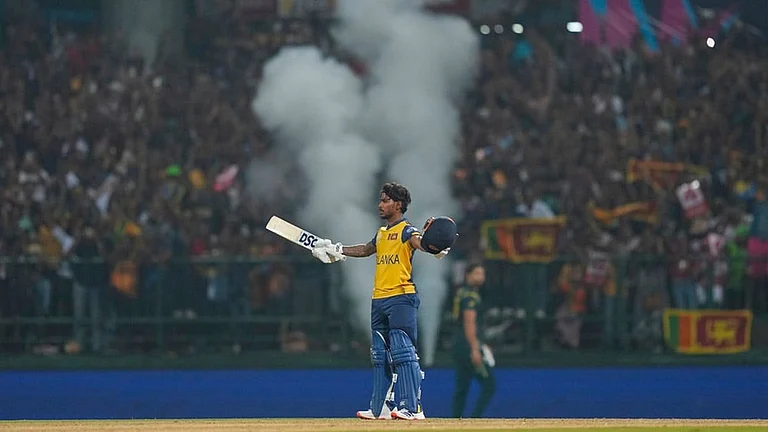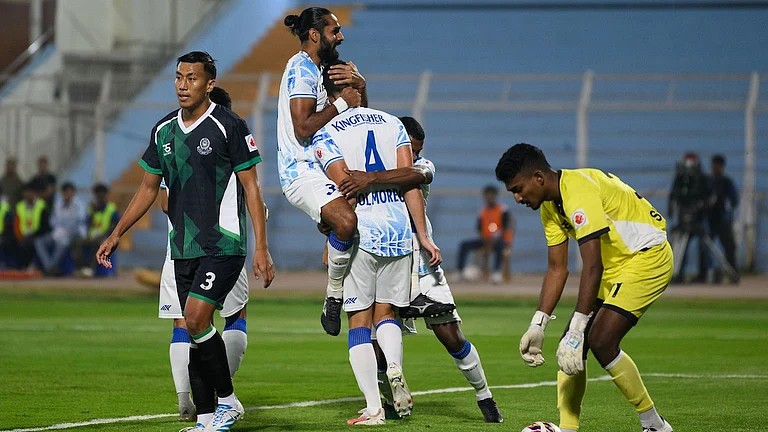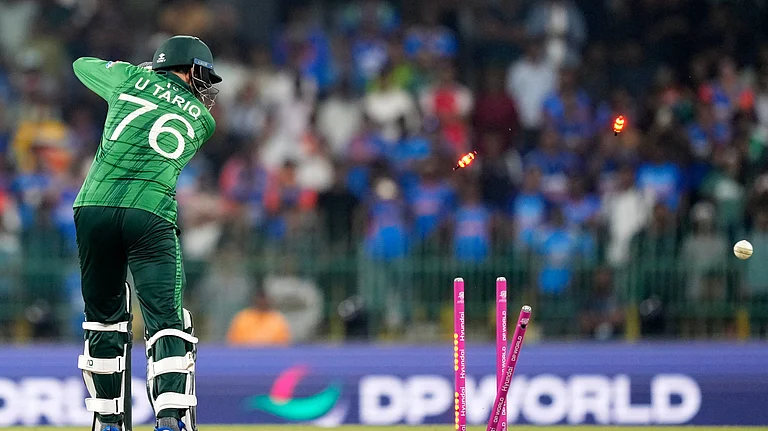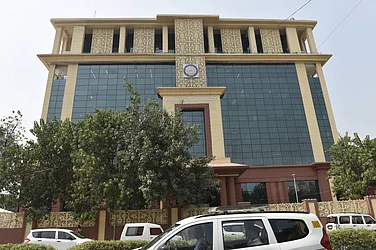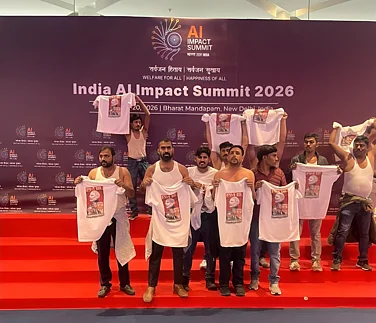75 years of India’s Independence, and there is so much that has happened and changed since August 15, 1947. When we examine the status of women in its light, we find there are many changes that have taken place, many laws that have been enacted, presumably with the objective of providing relief to women whose rights in relation to the family or otherwise are violated. But the status of women has not undergone any transformation at all. Of course, this is true for women all over the world, not just for India. Their roles have undergone a certain amount of transformation, but they are still considered inferior to men, seen as the ‘weaker sex’, as responsible for the gruesome crimes committed against them—and not just by the lay person, but also by many judges themselves, even of the Supreme Court, past and present.
However, in these 75 years, there have been quite a few landmark cases that may not have resulted in the expected social transformation and change in the status of women, but still create a ripple by acknowledging the wrong done to women by providing relief to the petitioners, if not to all women who undergo the same experiences. This does not mean that all recent decisions are good. There are several problematic ones, but I wish to focus on those that are important for the positions they have upheld and the relief they have provided. Such as the case of Mary Roy.
Mary Roy was an educator. But to the legal fraternity, she is known for her writ petition, the outcome of which was the legal acceptance of equal rights for Christian women in intestate succession, especially for Syrian Christian women of Kerala, who were denied inheritance rights on a par with their male counterparts till then. Yet, it did not result in her getting access to the property till 2009. The writ petition had been filed in 1960. The Supreme Court decision was pronounced in 1986. But only after her mother’s death in 2009 did Roy finally get to live in her inherited property—for just over a decade.
Another landmark case was one involving Githa Hariharan, regarding a mother’s guardianship rights over her son. It involved Section 6 of the Hindu Minority and Guardianship Act. A writer and editor, Hariharan filed an application with the Reserve Bank of India for a bond in favour of her then-minor son, stating that she would act as his natural guardian and manage his investment. The RBI returned the application and instructed her to resubmit it after procuring the signature of her son’s father, and to provide a certificate issued by a competent authority in her favour. Hariharan argued that this was violative of her equal rights as a mother, and that the said the applicable section of the Hindu Minority and Guardianship Act was discriminatory. The court ruled in her favour, but did not strike down the said section, saying the term “after” in Section 6 should not be interpreted to mean after the death of the father, but should be understood as “in absence of father”, etc. Thus, Hariharan got the relief she sought, but the ruling didn’t automatically ensure natural guardianship of children to countless other Hindu women who are caught in a similar situation, because neither did the Court strike down the specific section, nor the Act itself—which is what the petitioner had sought. In fact, such is the irony that the person in whose womb a foetus grows and who is responsible for its nourishment and nurture after birth, is not considered its natural guardian. Yes, the law continues to consider the father as the natural guardian—though only in the case of children born as a result of marriage. Meanwhile, those who are considered illegitimate have no claims on the father as their natural guardian. In such cases, it is the mother who is automatically charged with that responsibility.
One case that did bring about a major change was the Vishaka case. Through it, the Supreme Court provided relief to thousands of working women in India who faced various forms of sexual harassment in the course of carrying out their work-related responsibilities. For the first time, there was an acknowledgement of sexual harassment as violation of the fundamental human rights of women. More importantly, for the first time, a redress mechanism was created in the form of the Internal Complaints Committees in their places of employment. This has had far-reaching consequences for working women and students. Suddenly, generations of women who either had to quietly endure unwelcome behaviour, at work or in academia, or quit if they wanted to escape, no longer needed to do so. This does not mean that all women get relief or that there is no sexual harassment at the workplace any more. The judgment led to the enactment of the 2013 Sexual Harassment of Women at Workplace, (Prevention, Prohibition and Redressal) Act, and the criminalisation of various forms of sexual harassment through the Criminal Law Amendment Act, 2013. Even the mere acknowledgement of these wrongs is so empowering that they strike a blow to the normalising of these everyday violations of human rights of women, which instil fear in them and inform every decision they take about where to study or work.
The intervention of the courts, with increasing awareness of various forms of injustice among citizens of India, did not stop in the last century. There are quite a few recent decisions that are equally interesting, and may slowly but surely bring about a modicum of change in the perception and attitude of people in our country, and possibly, over time, end practices that are violative of the human rights of women, if not contribute to change in their status itself.
Here, I’m referring to Vineeta Sharma vs. Rakesh Sharma & Ors., XXX & Anr. vs. Registrar of Births and Deaths & Ors., The Secretary, Ministry of Defence vs. Babita Puniya & Ors., Joseph Shine vs. Union of India, 2018, etc.
All of these cases are extremely important because they have challenged some of the basic practices we take for granted, like denying daughters’ inheritance rights on their father’s property, requiring the father’s name for registering a child’s birth, denying permanent commission to women in the Army, criminalising adultery by a man with the wife of another, but not even considering it a wrong when a married man has sexual relations with other women, let alone when they live in adultery. Some of the above-cited rulings may make a difference only in law, while others have practical consequences for women and men by changing social attitudes, and can make a significant difference if implemented effectively.
Take, for example the case referred to as XXX & Anr. vs. Registrar of Births and Deaths & Ors. It refers to the writ petition filed, requesting that the father’s name be expunged from the register maintained by the office of the Registrar of Births and Deaths, with respect to the first petitioner, and to issue a certificate showing the mother’s name as a single parent. To ensure that no single parent or unwed mother is denied registration of the birth of her child, the court ordered the Registrar to put the mother’s name as a single parent. In the context of a society where the very idea of a family is no longer limited to a heterosexual couple and their natural-born children, but also includes heterosexual couples and their adopted children, or ones born out of IVF, along with homosexual couples and their adopted children, children born of surrogates, etc., it is time we start acknowledging the existence and rights of many single mothers—divorced, adopter or unwed—who, along with their children have been subjected to various kinds of social stigma till now, causing much mental harassment and social disabilities. It’s unquestionably a landmark case.
Joseph Shine vs. Union of India is another pathbreaking case, not because it will transform society, but because of the challenge it poses to the idea of a wife’s status vis-a-vis her husband. Section 497 of the IPC that defines adultery, has been challenged several times in the past, but the court’s response has generally been to say that this is for the protection of women, who are weak and are lured into extramarital relationships, etc., thereby robbing women of their agency. The underlying thought is a relic of a period when a wife was considered to be under the coverture of her husband, and incapable of taking any independent action. Basically, upon marriage, she lost her identity. The words, “without the consent or connivance of that man” mean that if a consensual sexual relationship of a man with a married woman was not rape, and if the husband gives his consent it wasn’t adultery either. Fortunately, in the said case, the court finally saw it fit to declare the section unconstitutional.
In conclusion, I would say that if the courts use only the Constitution as the touchstone to determine if any practice or law is tenable, instead of relying upon cultural and religious practices of India’s people, then there is hope that over time, women’s status in India may actually improve, if not become equal to that of men. Unless this happens, there is no possibility of the evils of sex-selective abortions, domestic violence, sexual assault, sexual harassment, etc., coming to an end. The role of the courts is thus very important in changing not just the perceptions of women and men in our society, but also their attitudes towards other women.
(This appeared in the print edition as "Courts as Harbingers of Women’s Rights Today")
(Views expressed are personal)
V.S. Elizabeth is professor of history and VC of the Tamil Nadu national law school of india university. Her research is helmed in feminist jurisprudence and early medieval Indian history







